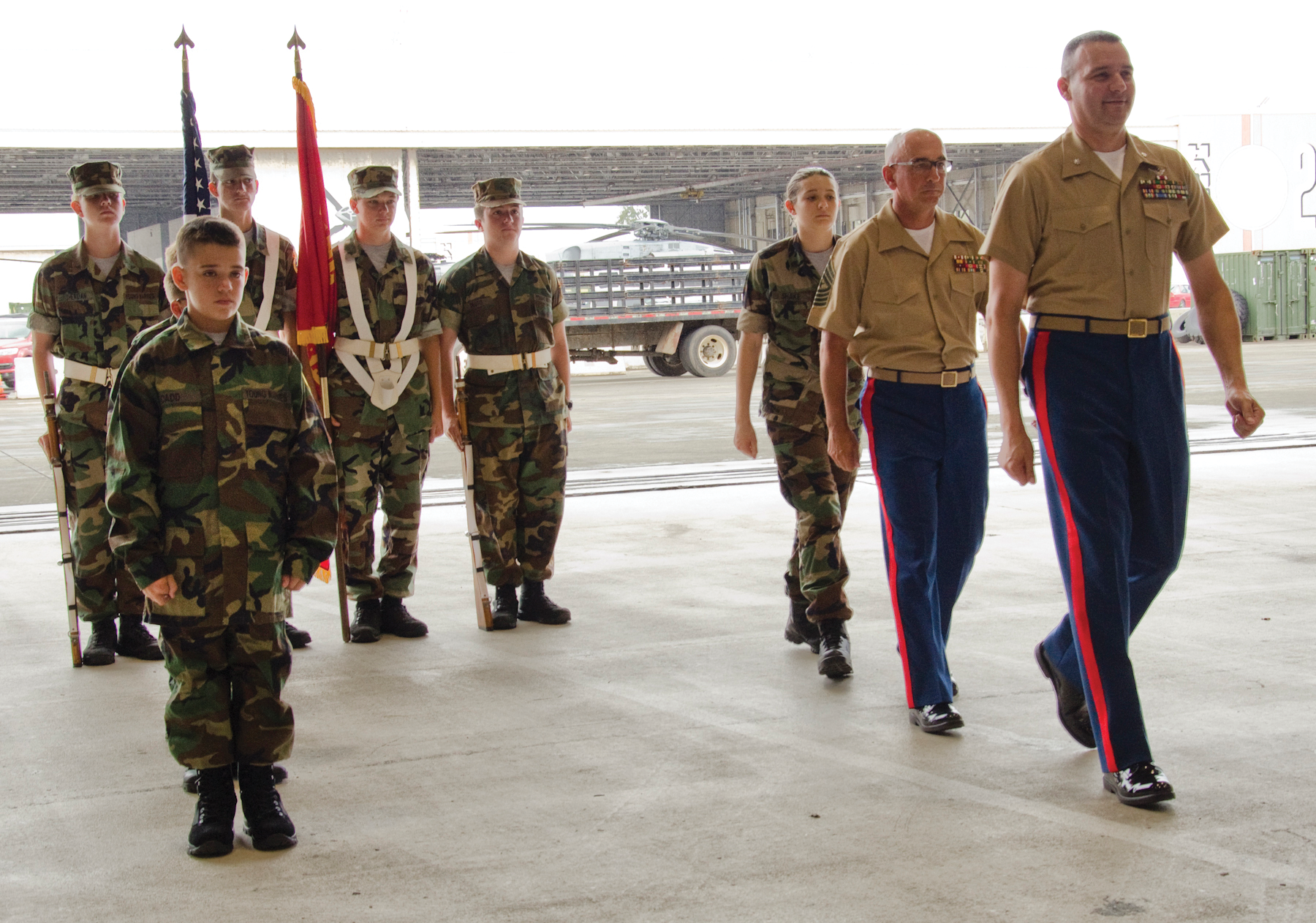
Creating Leaders and Leathernecks: Young Marines Program Focuses on Community Service, Citizenship
By: Abra HogarthPosted on January 15, 2024

The philosophy of the Young Marines still resonates with today’s youth—64 years after the organization’s inception. In the last decade-plus, numerous Young Marines have gone on to serve in the Marine Corps, crediting their time participating in the leadership building nonprofit as the reason for serving their nation.
Lance Corporal Macie Ross was a Division Young Marine of the Year in 2019 and later, the honor graduate of her boot camp platoon. Currently serving as a combat photographer at Marine Corps Base Camp Pendleton, Calif., Ross said her military career has been influenced by the time she spent in the Young Marines.
“Young Marines is a one-of-a-kind type of program,” Ross said. “They teach us to honor our veterans, help our communities, and to become a better version of yourself. We learn core values—leadership, teamwork, and discipline—which transfer to anything you do in your future.”
Volunteerism and community service is at the heart of the Young Marines program. From a young age, the youth participants are exposed to events and experiences where they honor veterans and volunteer their time in their community. Young Marines participate in color guards, veteran appreciation events, community events, assist at food pantries and soup kitchens, help other nonprofit organizations and teach drug prevention and resistance classes in schools and religious organizations. Many units have created events that bring their communities together and raise awareness for the needs of their specific community.
The last few years have seen Young Marines participate in disaster response cleanups from tornadoes in Tennessee to hurricanes in Florida. Toys for Tots is a major element of community service in partnership with the Marine Corps League. Youth members helping other youth makes an amazing impression on the members.
Young Marines support Veterans Day and Memorial Day events around the country, visiting veterans in homes, mailing out cards, and helping pack gift boxes. At the national level, the Young Marines program supports the national Memorial Day parade in Washington, D.C., helping carry all the parade banners and other parade elements as needed.
Some of the other more notable annual events that Young Marines take part in include the Navajo Code Talker Day in Window Rock, Ariz., and the Pearl Harbor Remembrance Parade in Hawaii. In Arizona, Young Marines perform community service projects, participate in the parades and ceremonies and support the Code Talkers and their families where requested. A plankowner of the Pearl Harbor Remembrance Parade, Young Marine units across the country fundraise to come to Hawaii in December to be a part of the remembrance activities and the parade. They complete a community service project (usually a beach cleanup at MCB Kaneohe), perform their own memorial service at the Cemetery of the Pacific and support the annual parade by carrying banners and all the parade balloons.
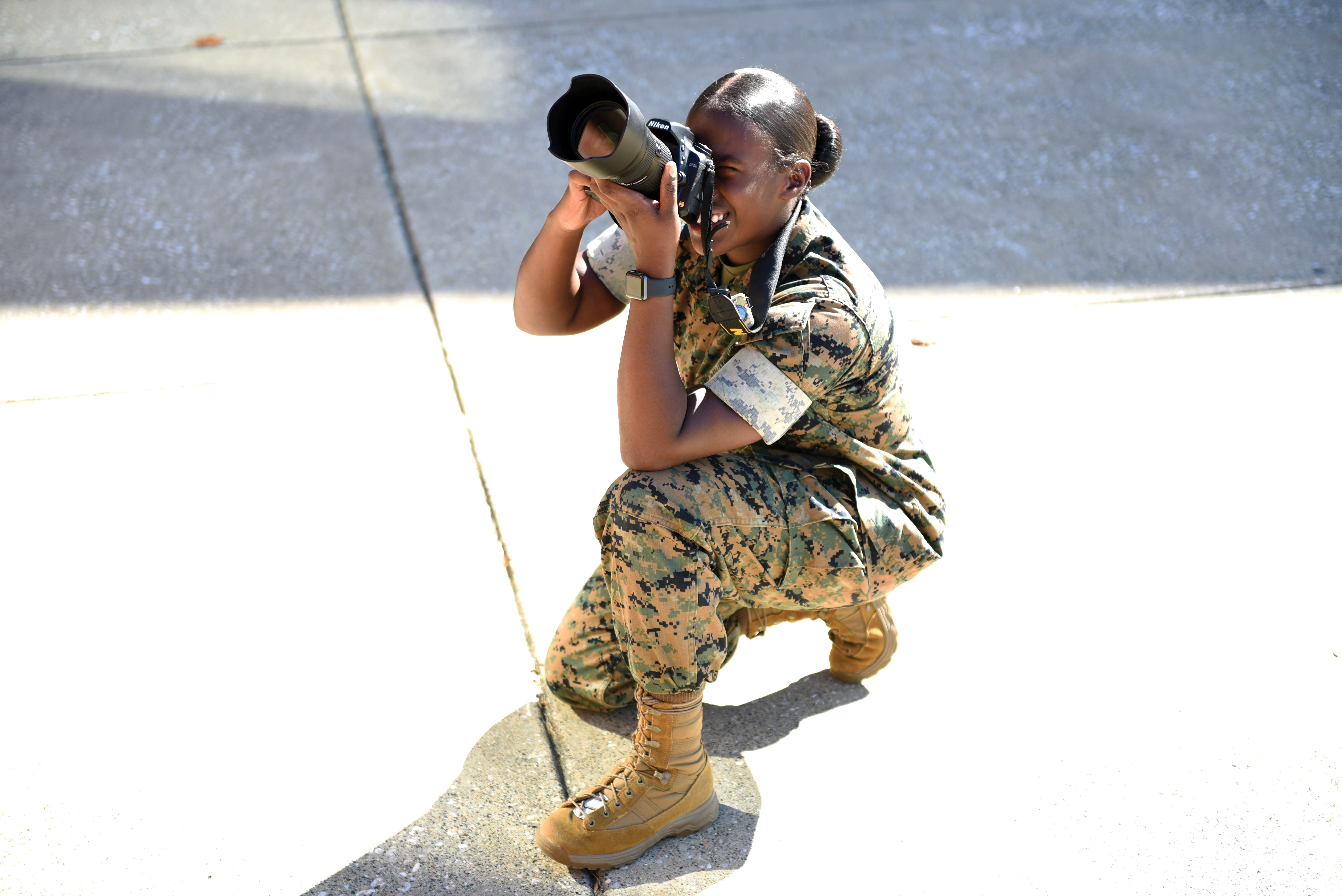
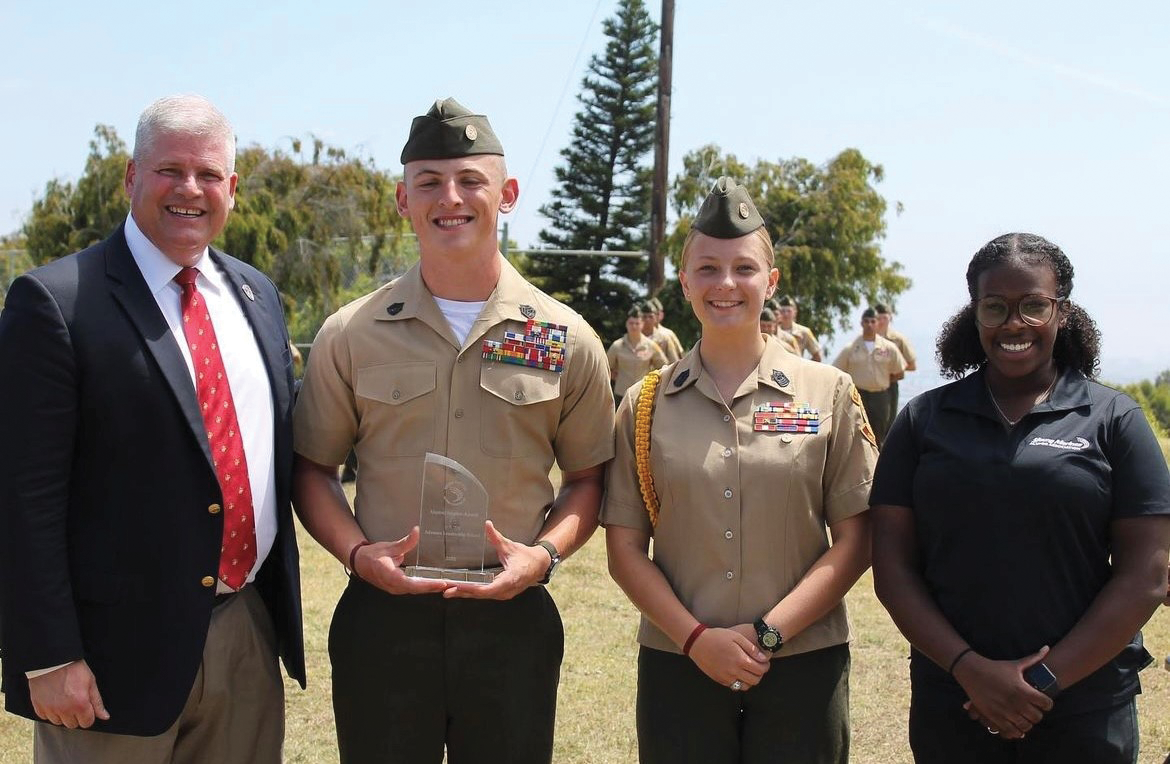
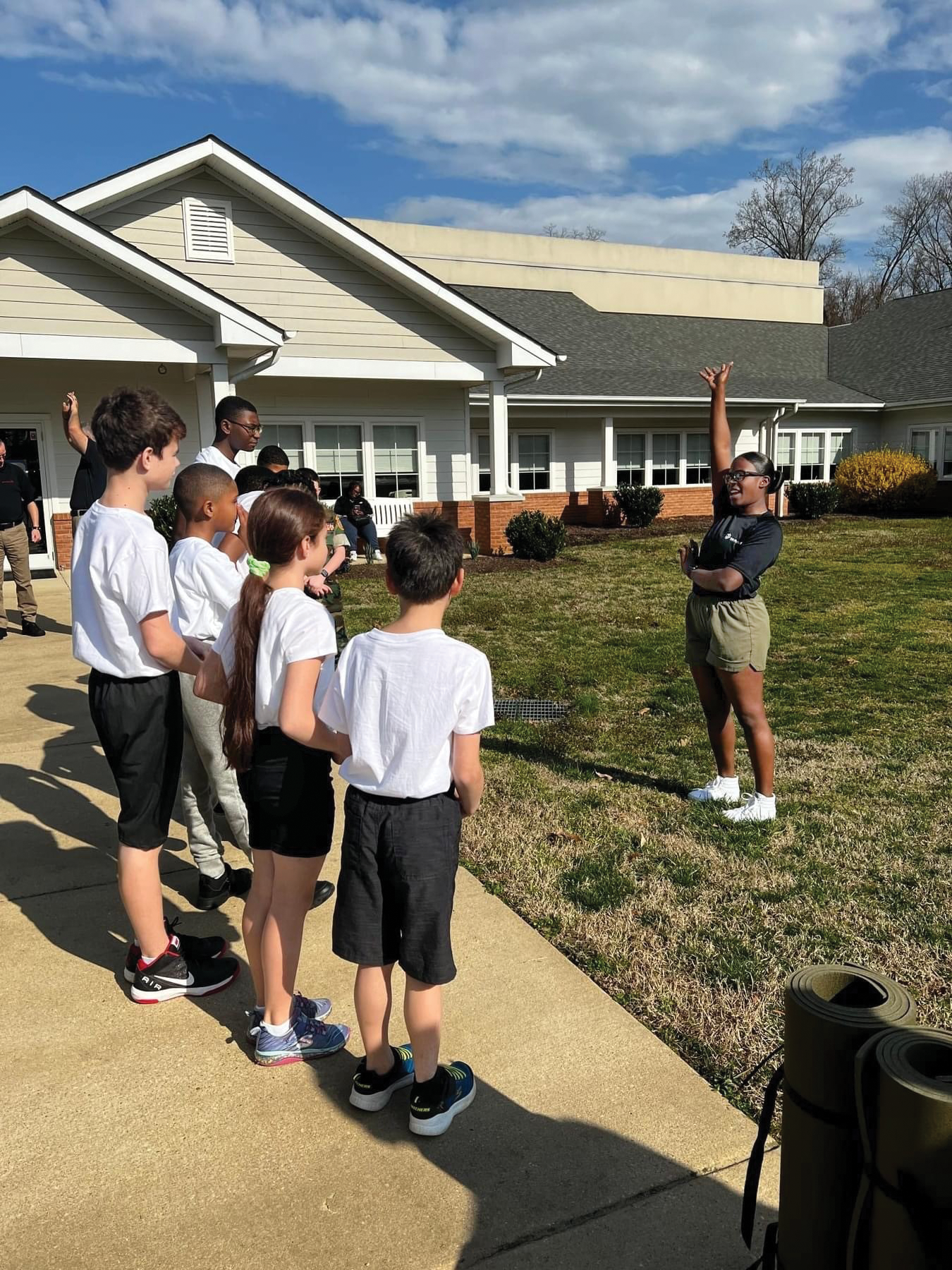
At the end of each year, Young Marines support Wreaths Across America at national cemeteries across the country. These events have introduced Young Marines to veterans from World War II to the present, giving them firsthand knowledge of the service and sacrifices made on behalf of our country and others around the world. They have learned history from those who were there, including Hershel “Woody” Williams, who explained firsthand about the landings on Iwo Jima; Thomas Begay, who talked about becoming a Code Talker; and Pearl Harbor survivor Jack Holder, who talked about watching the enemy aircraft descend on them. These are lessons they will never forget.
“Although Young Marines is not an official recruiting program for the military, you are surrounded by Marines and veterans,” said Ross. “Their stories and attitudes towards the Marine Corps definitely influenced me into looking into the Corps. The Young Marines program also allowed me to explore my passion for photography through a public affairs … course that I was able to attend. All of the people I met and the opportunities I had in this program is why I am a United States Marine.”
The Young Marines program began when a group of fathers wanted to encourage their children to be good citizens and role models for other youth. Many of these parents had served in the Marine Corps and wanted to use the values and experiences they had adopted from their time in service to make the world a better place. So, in 1959, the first Young Marines joined the program in Waterbury, Conn., where the Brass City Detachment of the Marine Corps League (MCL) took a huge interest in the program and has been a staunch supporter ever since.
In 1965 a member of the MCL Valley Detachment in Connecticut raised more than $5,000 to fly an entire Young Marine unit to the MCL National Convention in Kansas City, Mo., where the MCL adopted the Young Marines as its national youth program. Though originally chartered as a subsidiary organization of the MCL, the program grew exponentially. In 1980, the Young Marines branched off and became its own entity, with its own national non-profit 501(c) (3) status as a youth education and service program.
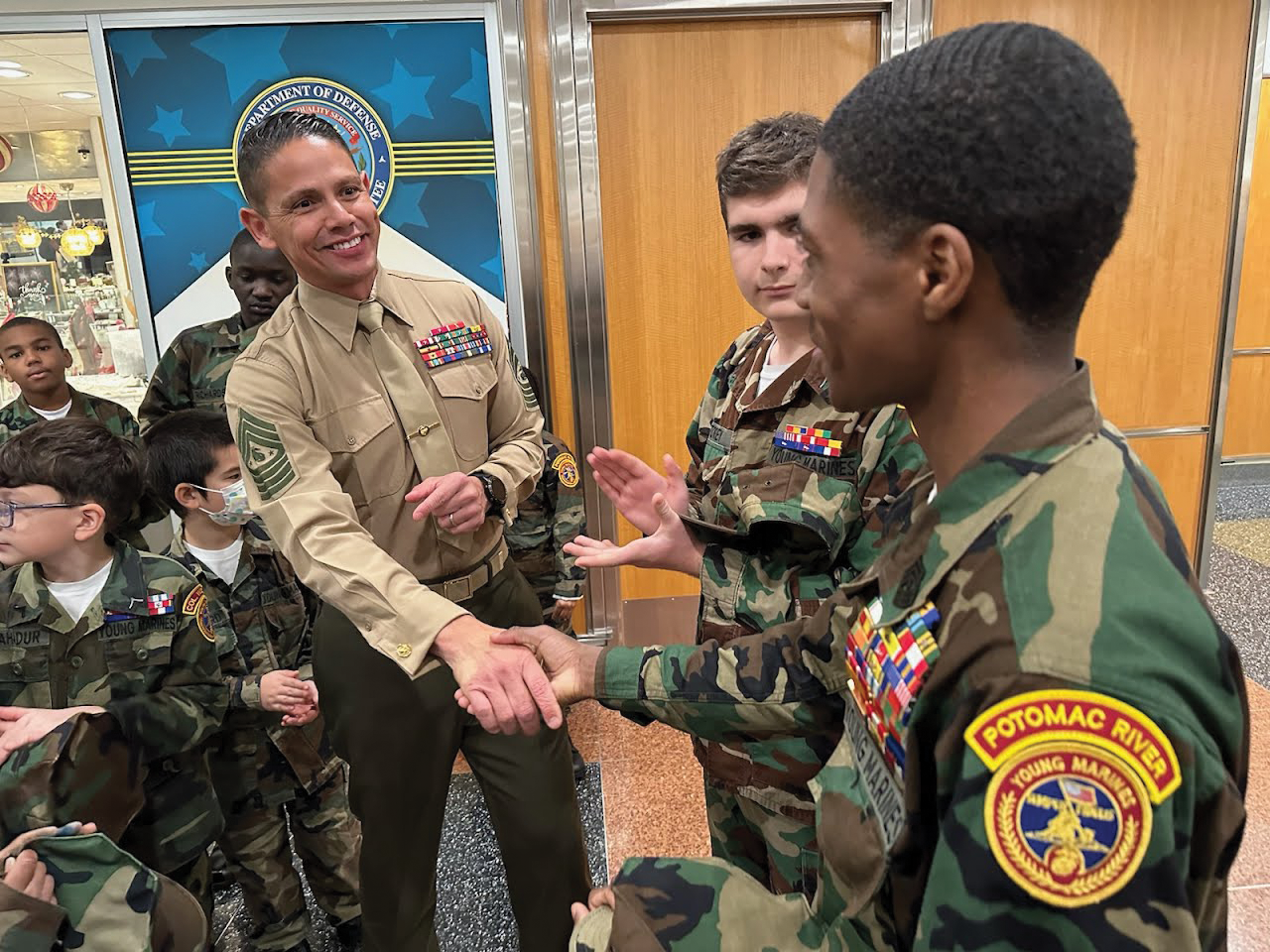
In the 1990s, Young Marines was competitively selected as the youth drug demand reduction (DDR) program for the Marine Corps, when each military service was tasked to have a similar program. Young Marines has continued and expanded the DDR mission to this day. In 2014, the Young Marines took its DDR efforts to the next level by launching a successful program called Closing the Gate on Drugs. The word “gate” links to “gateway drugs” which are tobacco, marijuana, prescription medication, inhalants, and alcohol.
This drug prevention and resistance program remains a positive, flourishing piece of the Young Marines program that has steered tens of thousands of young people away from drugs. Each Young Marine receives a minimum of 12 hours of DDR education and training each year to include using peer to peer education. Young Marines are consistently going out into their communities and sharing information about why it is important to live a healthy, drug-free lifestyle.
Young Marines start their leadership journey at entry-level recruit instruction. They learn the fundamentals of leading through drill and other opportunities to take the lead in daily activities or service events. As leadership is so important to the program, the Young Marines hold three specific leadership schools with a designated curriculum: Junior Leadership School or JLS, Senior Leadership School (SLS) and Advanced Leadership School (ALS). Successful completion of leadership schools is a requirement for promotion.
There is a National Leadership Academy that is typically held in the summer over a two-week period. Young Marines must qualify to attend and then learn strategies and skills that they take back to their units to put into use.
“Having had so much practice with bearing and drill really helped me make it through boot camp and thrive,” said Lance Corporal Abbigail Waters, who was the 2020-2021 National Young Marine of the Year and is now an aircraft mechanic at Marine Corps Air Station Miramar. “My time in the Young Marines helped to set me up as I grew into the adult I am today by teaching me how to think and make decisions for myself. Another great benefit is that I had many experiences working with a lot of different people from a lot of different backgrounds. It’s no different in the Marine Corps, there are people from so many different backgrounds and knowing how to work with anyone has helped me significantly.”
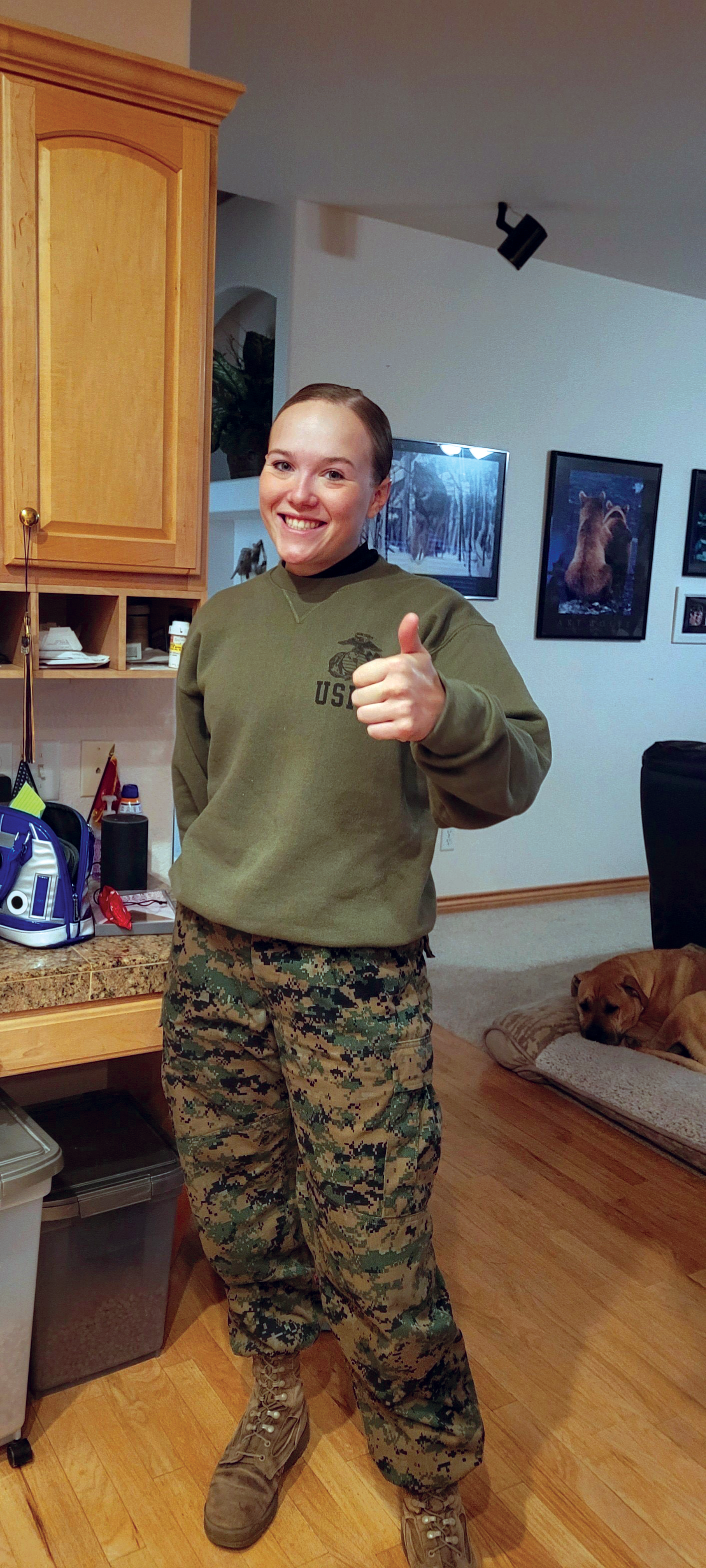
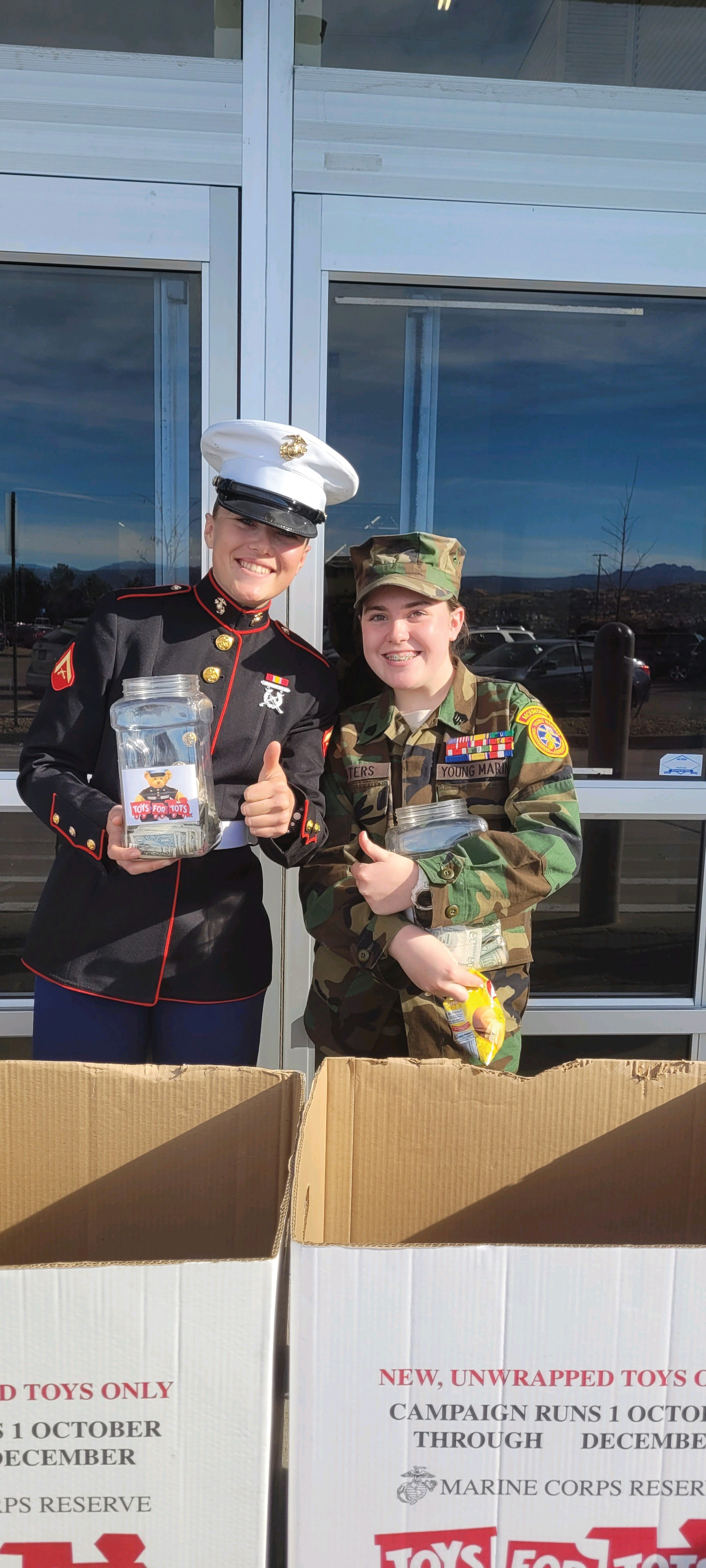
Surveys of Young Marine alumni show that more than 30% of Young Marines choose to serve in our nation’s military services. The next largest employment choices from that survey are first responders and teachers. Whatever they choose to do with their lives, Young Marines find themselves in high demand due to the solid personal qualities learned in this program.
Now a Border Patrol Agent for U.S. Customs and Border Protection, Devin Lewis was a Young Marine before enlisting in the Marine Corps where he served as an engineer heavy equipment operator at Combat Logistics Battalion 5 (CLB-5) at Camp Pendleton from 2010-2015. Lewis said his time in the Young Marines helped give him a leg up when he went into the Corps.
“I already knew that I was going to be a Marine because I was third generation, but the Young Marines program better prepared me for my military service. The program helped me to come out of my bubble. I was a very shy kid, and the program was instrumental in making me more outspoken and not afraid to be a leader. The Young Marines is the only youth organization that I can think of that gives the opportunities it does. No other youth organizations rival the Young Marines when it comes to leadership, teamwork, and discipline. All three core values were important to me. I still use the Young Marines and the Marine Corps core values to this day; they help to remind me who I am and who I want to be.”
Lewis still carries on the Young Marine attitude of giving back and serving.
“I continue to volunteer with the Young Marines program,” Lewis said. “I was a Unit Commander of the Lewis & Clark Young Marines in Vancouver, Wash., from 2017-2022, and I am now the Arizona Grand Canyon Regiment Commander … I look at it this way, the Young Marines gave me so many opportunities that I would have never had. So now that I am an adult, I want to give those same opportunities that I had back to the youth of today.”
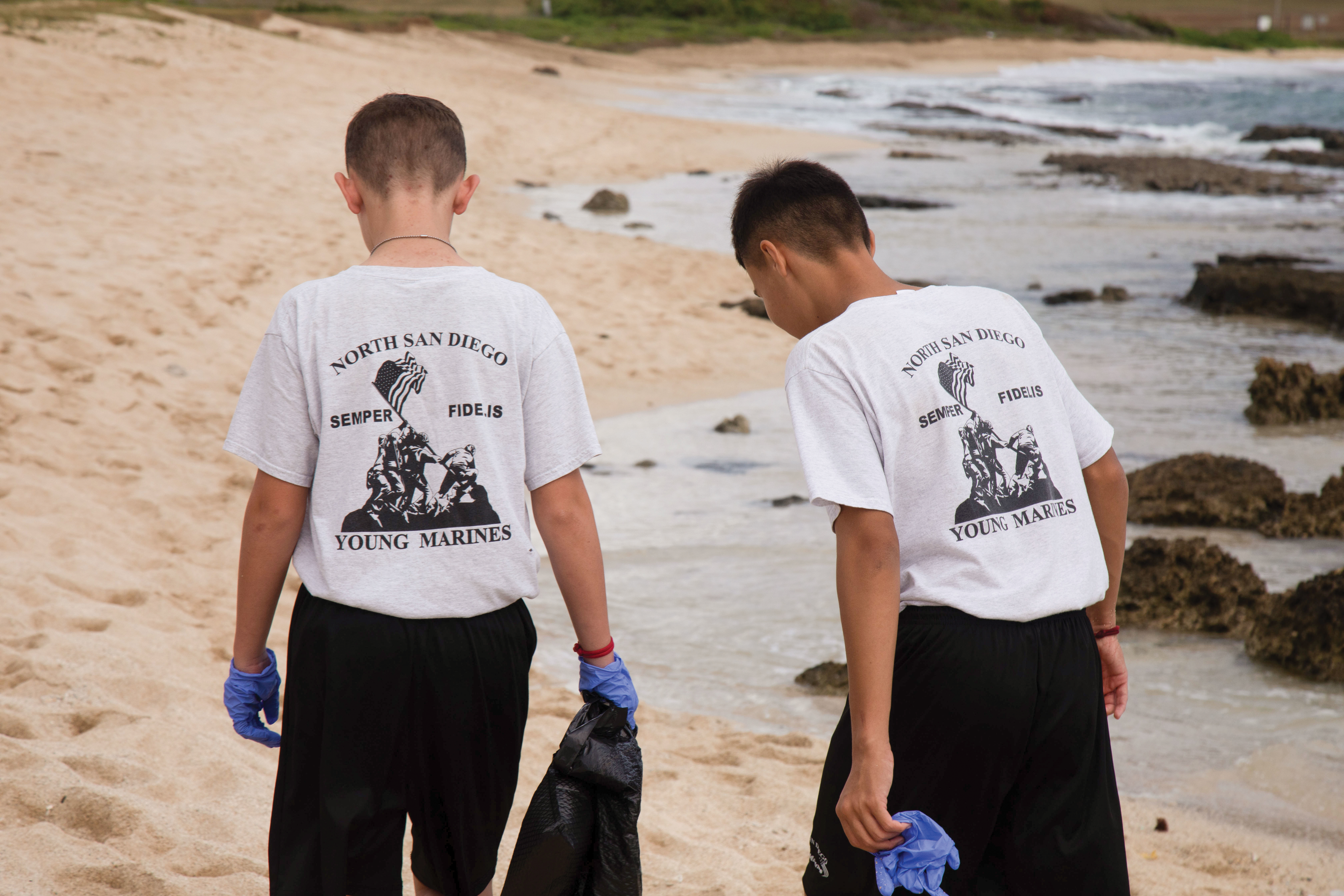
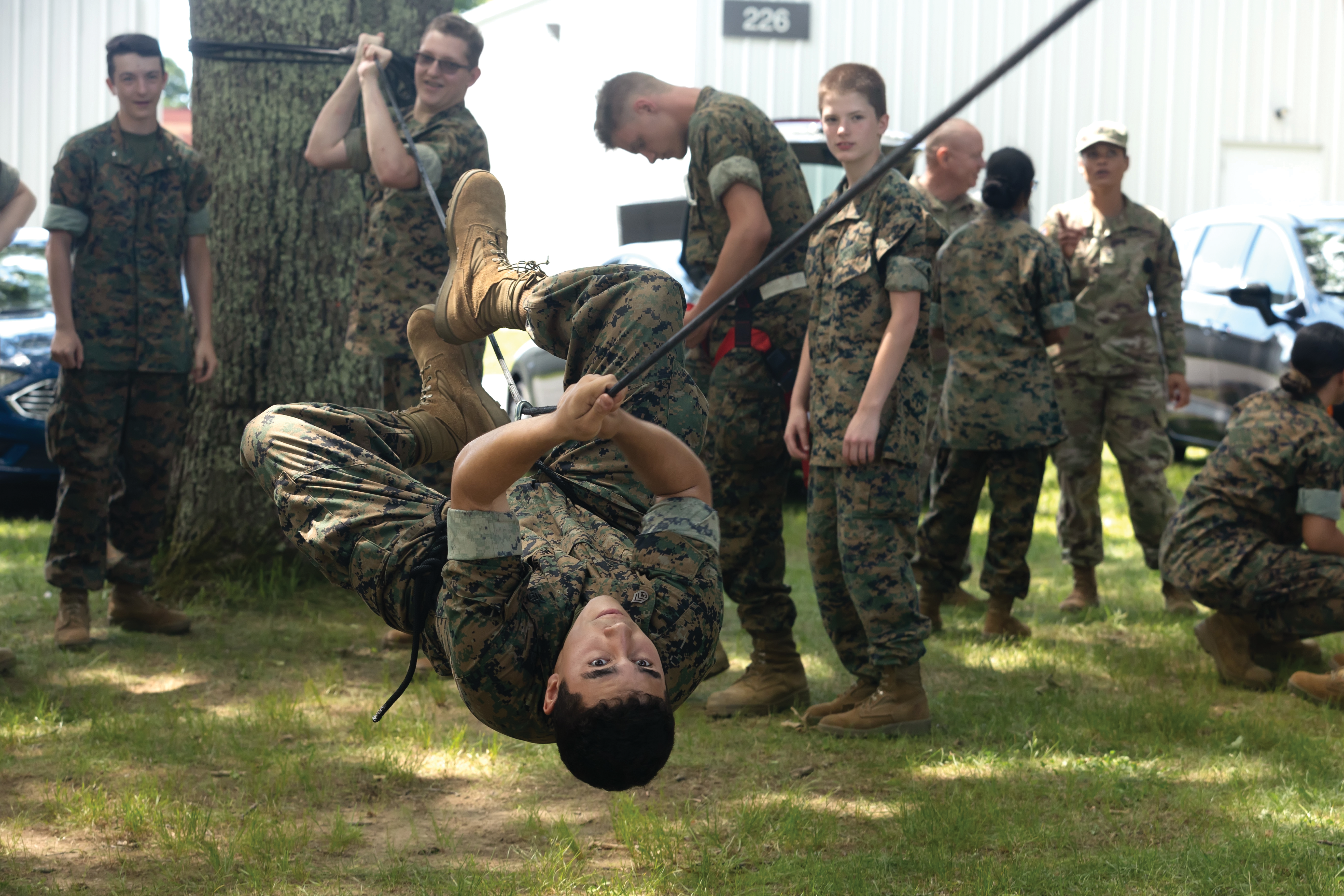
Staff Sergeant Joseph Harding was a Young Marine with the Mid Cumberland Young Marines in Mt. Juliet, Tenn., from 2010 to 2016. He is still involved with the Young Marines as an adult volunteer with the Fall River Young Marine unit in Fall River, Mass., and previously, with the Cherry Point Young Marine unit in Havelock, N.C. Harding said he had many mentors from the Corps during his time as a Young Marine.
“These Marines taught us what it meant to truly be a Marine,” Harding said. “Being a Marine is about selfless service, giving back, steadfast commitment to our nation and its people, and that you are a Marine for life. This resonates with me daily. I wake up each day, knowing the shoes these gentlemen, and thousands of other Marines, have left are hard to fill. However, I do my best to live up to their legacy to honor their selfless service, steadfast commitment to our nation and its people, and to embody ‘Once a Marine, always a Marine.’ ”
The Young Marines is always looking to add youth mentors to the program. If you are interested in volunteering as an adult or have a young relative you think would benefit from the program, please visit www.YoungMarines.org.
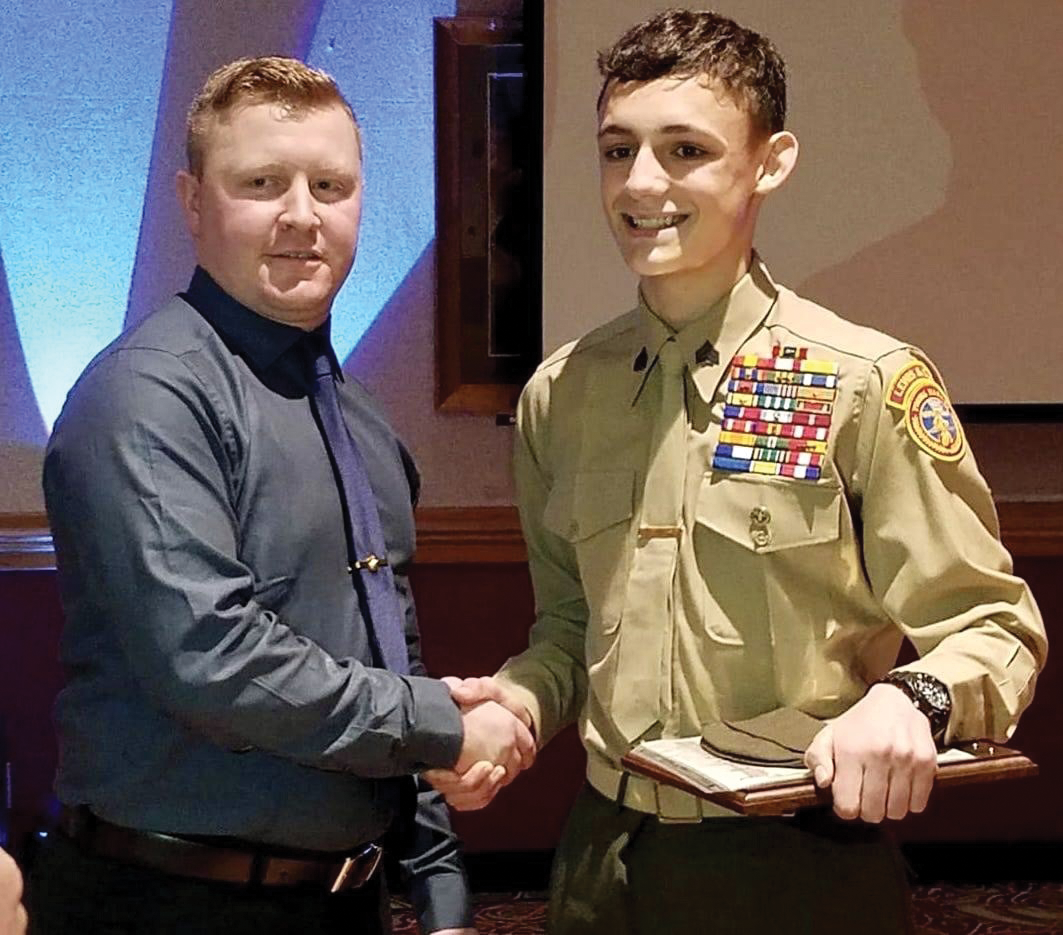
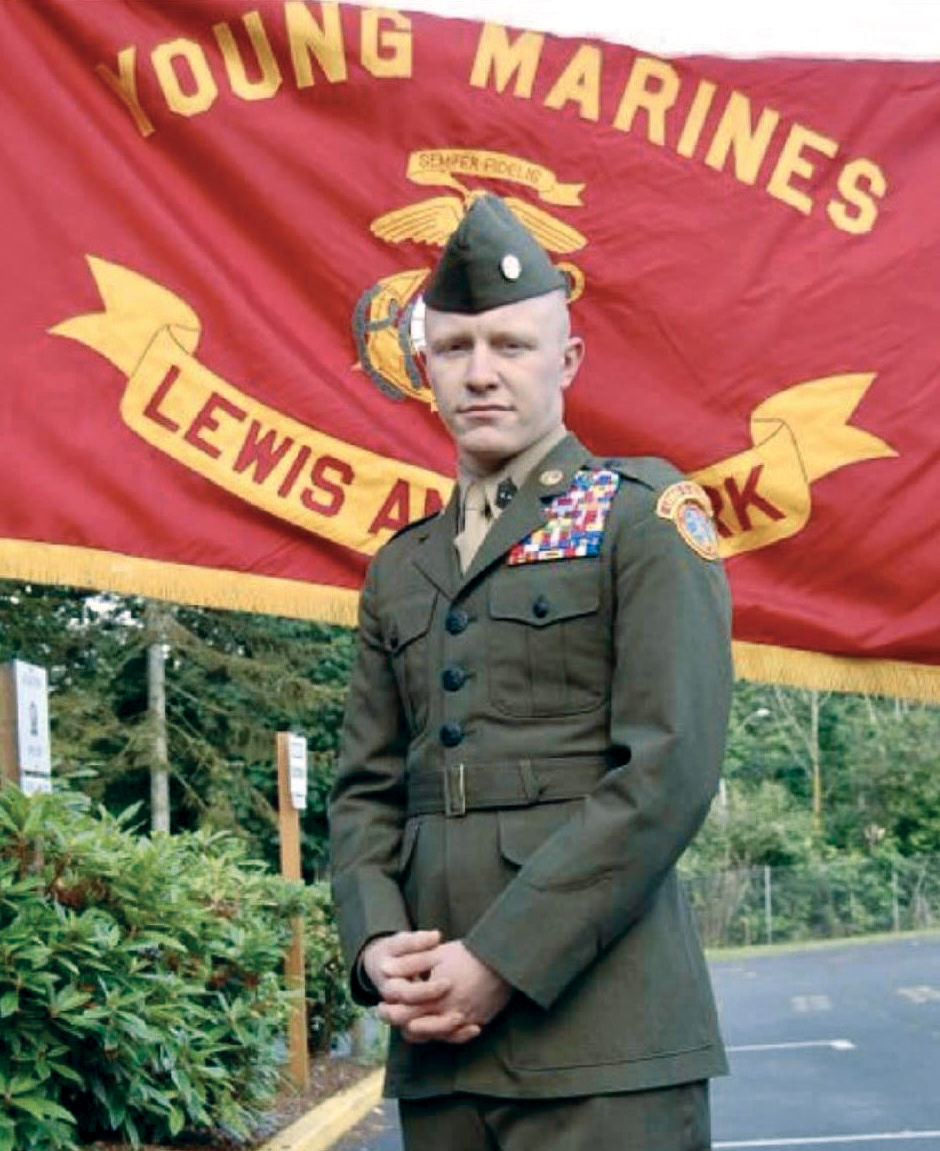
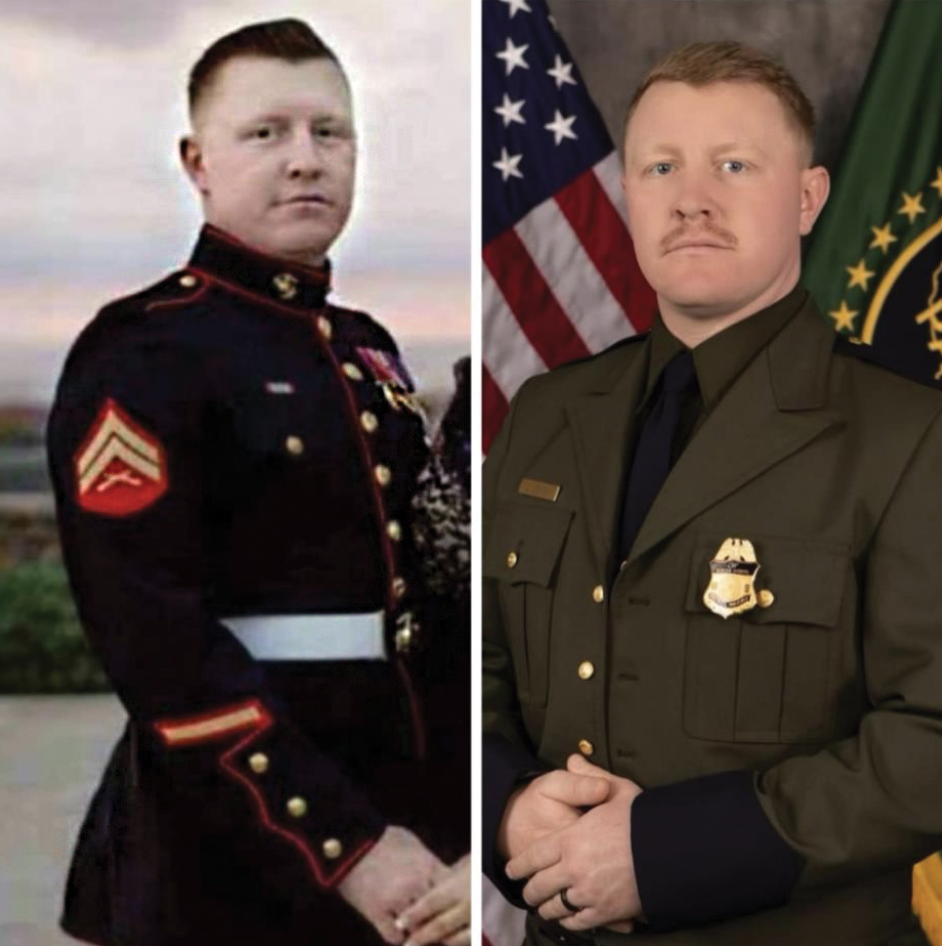
Author’s bio: Abra Hogarth is the director of strategic communications for the Young Marines and has worked in the communications field for over 25 years. She has a communications degree from George Mason University and has been writing articles and short stories her whole life.




